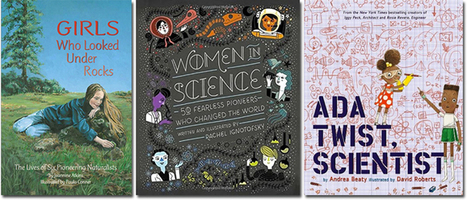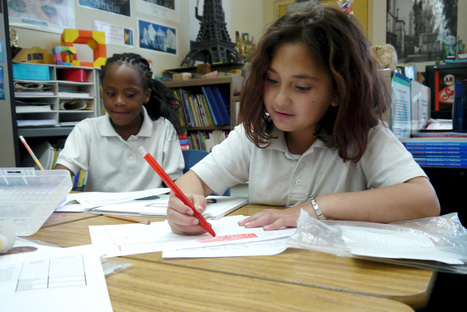 Your new post is loading...
 Your new post is loading...

|
Scooped by
John Evans
|
In the last decade, rates of anxiety-related disorders in teenagers have steadily risen, particularly in girls. Researchers and psychologists posit several hypotheses about why these rates are on the rise -- from digital hyperconnectivity to heightened external pressures to simply a greater awareness, and therefore diagnosis, of mental health concerns.
Whatever the causes, Dr. Lisa Damour has hopeful news for parents and teens: first, some degree of stress and anxiety is not only normal but essential for human growth. And if those levels become untenable, there are tested strategies for reining anxiety back in.

|
Scooped by
John Evans
|
We don't always think about it, but every child is a scientist! From the moment she pushes a spoon off her high chair to see what happens or starts asking, "why?" to everything, she's started on a long and exciting lifetime of discovery. As time goes on, though, kids can be discouraged from this natural interest and come to believe that science is too complicated for kids -- so it's especially important to nurture that spirit of curiosity from a young age!
One great way to encourage a child's interest in science is by showing them role models of kids -- particularly girls -- in STEM fields. In fictional stories, they can see faces that match their own: kids who are turning their ingenious minds to investigating questions and solving problems using the scientific method. And, through non-fiction, they can learn about curious children just like them who grew up to make amazing scientific discoveries.
To that end, in this blog post, we've shared many of our favorite books about girls and women who love science, engineering, and math! In the first part of the post, you can discover many fictional stories about curious, inventive Mighty Girls, while in the second part, you'll find many inspiring books about real-life female scientists. From beautifully illustrated picture books to fascinating teen biographies, these titles show the importance of scientific curiosity and celebrate the scientific progress that we owe to women in science both past and present. They're the perfect choice to inspire the budding scientist on your gift list!
|

|
Scooped by
John Evans
|
Books are an incredible tool to teach young girls to know their value. Now that spring is here, I’ve got some great picks to share. Whether these books encourage your girls to speak up, introduce them to women and girls who changed the world, or just show them a character that’s like them, I hope they inspire your daughters like they inspired mine.

|
Scooped by
John Evans
|
Like most Americans, Andrew Meltzoff, co-director of the University of Washington Institute for Learning & Brain Sciences, had heard that girls can't do math. Research shows that in the U.S., both adults and older children believe that math is a male activity.
But Meltzoff wanted to know how early children "catch" stereotypes like this, and when they learn social biases, more generally. He found that stereotypes are ingrained by second grade – before children even learn their multiplication tables.
|
 Your new post is loading...
Your new post is loading...
 Your new post is loading...
Your new post is loading...













